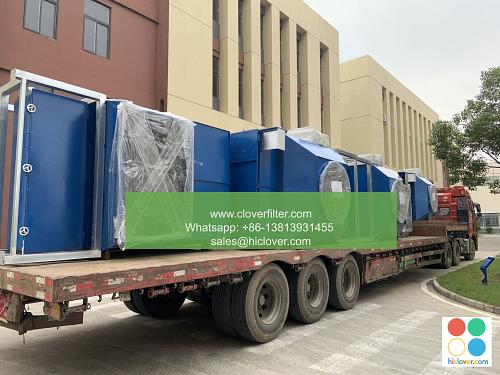Real-World Applications of Air Filter Industry Standards

The air filter industry has become a crucial component in maintaining indoor air quality, and its standards have far-reaching implications in various sectors. From heating, ventilation, and air conditioning (HVAC) systems to industrial air purification and medical facilities, air filter industry standards play a vital role in ensuring the health and safety of individuals. In this article, we will explore the real-world applications of air filter industry standards, highlighting various application areas and the importance of air filtration systems in maintaining a healthy indoor environment.
Industrial Air Purification and Cleanroom Technology
In industries such as pharmaceuticals, biotechnology, and electronics manufacturing, the use of high-efficiency air filters is essential to maintain a clean and controlled environment. Air filter industry standards, such as those set by the International Organization for Standardization (ISO), ensure that the air filtration systems used in these industries meet the required air quality standards. The use of HEPA filters and ULPA filters in cleanroom technology is critical in preventing contamination and ensuring the quality of products.
Commercial HVAC Systems and Indoor Air Quality
In commercial buildings, HVAC systems play a crucial role in maintaining a comfortable indoor environment. Air filter industry standards, such as those set by the American Society of Heating, Refrigerating, and Air-Conditioning Engineers (ASHRAE), ensure that the air filtration systems used in these buildings meet the required air quality standards. The use of air filters with high minimum efficiency reporting value (MERV) ratings is essential in removing particulate matter, pollutants, and
Medical Facilities and Infection Control
In medical facilities, the use of air filtration systems is critical in preventing the spread of infections and maintaining a sterile environment. Air filter industry standards, such as those set by the Centers for Disease Control and Prevention (CDC), ensure that the air filtration systems used in these facilities meet the required air quality standards. The use of HEPA filters and ULPA filters in operating rooms, patient rooms, and laboratories is essential in removing pathogens, bacteria, and viruses from the air, thereby improving infection control.
Residential Air Filtration and Indoor Air Quality
In residential homes, the use of air filtration systems is essential in maintaining a healthy indoor environment. Air filter industry standards, such as those set by the Association of Home Appliance Manufacturers (AHAM), ensure that the air filtration systems used in these homes meet the required air quality standards. The use of air filters with high MERV ratings is essential in removing particulate matter, pollutants, and
Conclusion
In conclusion, air filter industry standards have far-reaching implications in various sectors, including industrial air purification, commercial HVAC systems, medical facilities, and residential air filtration. The use of air filtration systems that meet these standards is essential in maintaining a healthy indoor environment and improving indoor air quality. As the demand for clean air and healthy indoor environments continues to grow, the importance of air filter industry standards will only continue to increase, highlighting the need for innovation and advancements in the field of air filtration technology. Prompt

